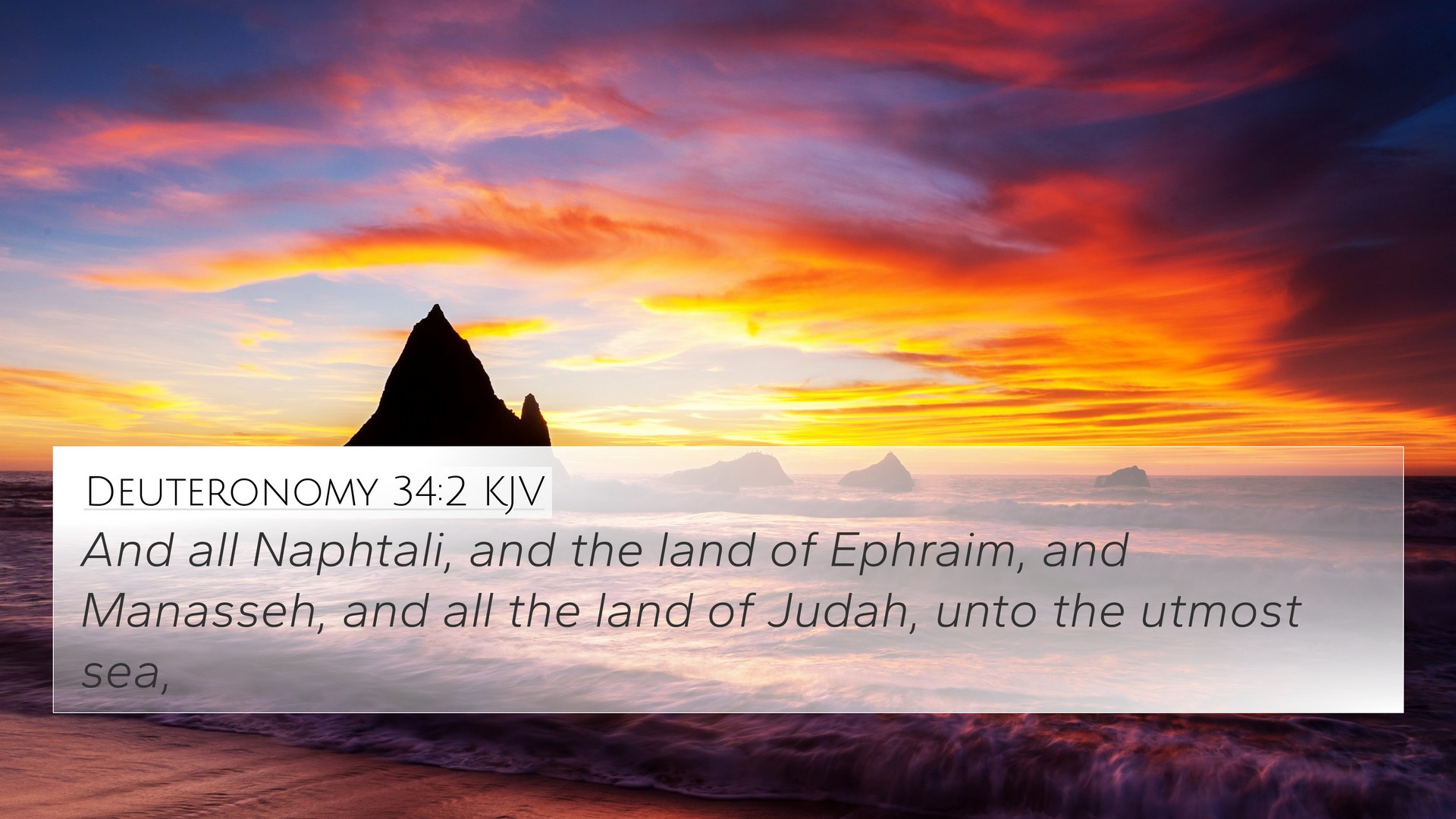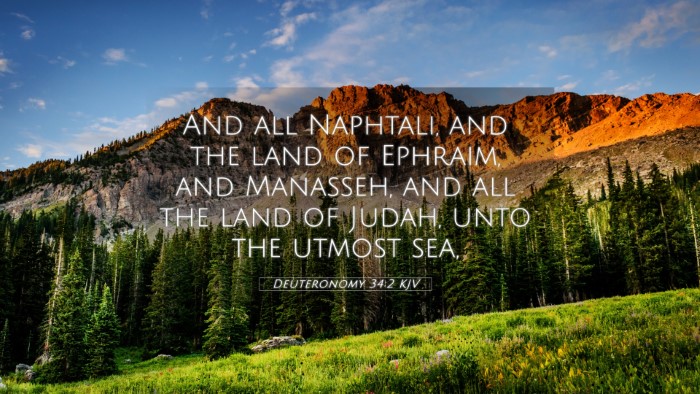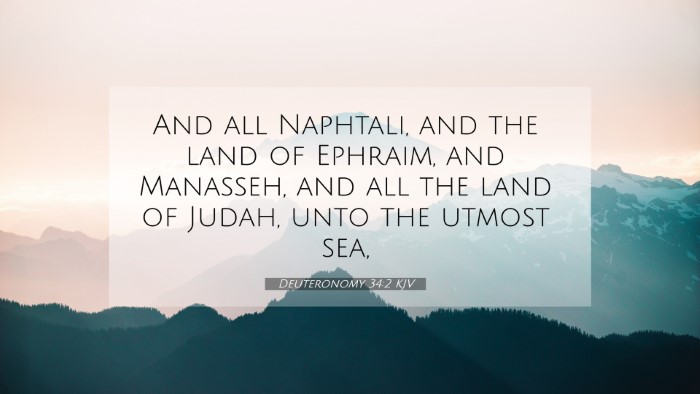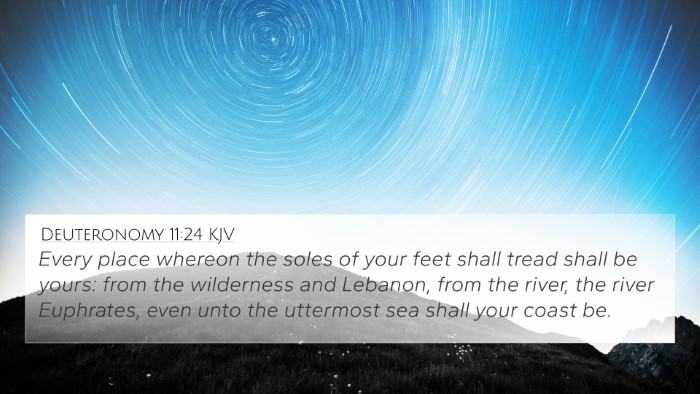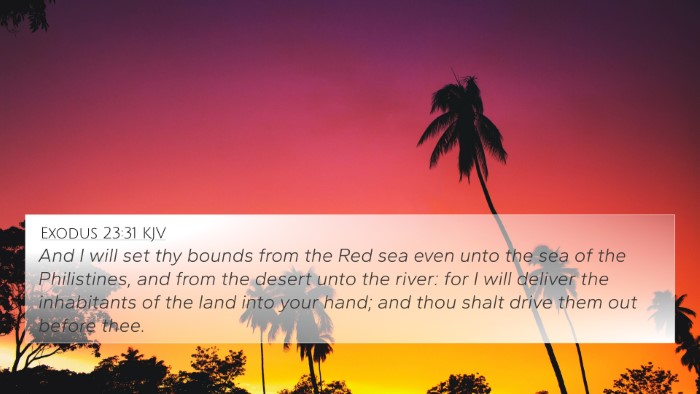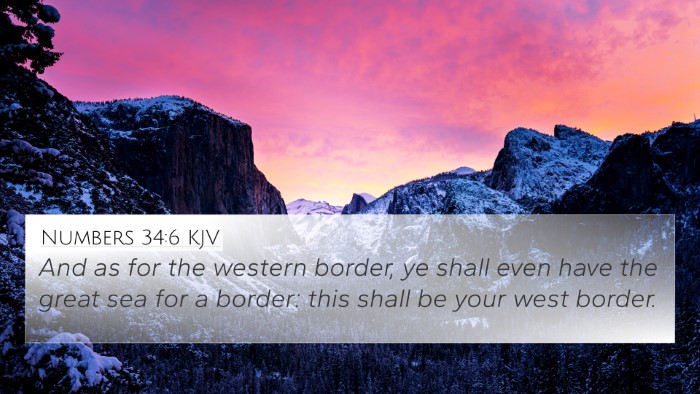Deuteronomy 34:2 - Understanding the Significance
Deuteronomy 34:2 states: "And all the land of Gilead unto Dan, and all Naphtali, and the land of Ephraim, and Manasseh, and all the land of Judah, unto the utmost sea," In this verse, we find an important moment that reflects the culmination of Moses' leadership and his view of the Promised Land before passing on leadership to Joshua.
This scripture not only marks a geographic scope but also emphasizes God's covenant with Israel, highlighting His promise to deliver them into this land. The commentary from various biblical scholars offers deeper insights into the significance of Moses' view from Mount Nebo as described in the verse.
Meaning and Context
This verse holds considerable weight within the narrative of Israel's journey.
- Matthew Henry: He notes that Moses' view of the land represents the fulfillment of a long-awaited promise. It showcases both the beauty of the land and the disobedience of the people that prevented Moses from entering.
- Albert Barnes: He emphasizes the geographical significance of the locations mentioned, indicating that each territorial division holds historical importance, connecting the narrative to God's promise to Abraham.
- Adam Clarke: He reflects on the emotional aspects of Moses' view, stressing the sadness of being able to see the Promised Land but not entering it himself, framing it as a lesson in perseverance and humility.
Bible Verse Cross-References
Various verses throughout the Bible connect back to the themes presented in Deuteronomy 34:2, demonstrating the extensive interconnectedness of scriptural themes. The following verses highlight these connections:
- Genesis 15:18-21: God promises land to Abraham, establishing the foundation for Israel's inheritance.
- Exodus 3:17: God assures the Israelites of His intent to deliver them to a plentiful land, fulfilling His promises.
- Numbers 34:1-12: Detailed boundaries of the Promised Land are provided, linking back to Moses' recognition of these locations.
- Joshua 1:2: Joshua is commanded to lead the people into the land that Moses saw, presenting a direct connection to Moses' vision.
- Psalms 106:23: Reflecting on Moses' situation, the psalmist discusses God's anger and the consequences of disobedience.
- Luke 9:30-31: The transfiguration of Jesus where Moses appears, reinforcing his role within God's redemptive narrative.
- Hebrews 3:16-19: Discusses the disobedience of the Israelites in the wilderness, tying back to Moses' final days.
Thematic Connections
The themes found in Deuteronomy 34:2 have profound implications for understanding God's faithfulness and the importance of obedience.
- Faithfulness: Moses' vision of the Promised Land is a testament to God’s unwavering promise throughout generations.
- Leadership Transition: The moment serves as a transition point, marking the end of Moses' era and the beginning of Joshua's leadership.
- Remembrance: It highlights the importance of remembering God's past actions and His covenant with Israel, which is crucial for future generations.
Tools for Bible Cross-Referencing
For effective scripture study, many resources can aid in the cross-referencing of biblical texts. These tools help deepen understanding by identifying connections between verses:
- Bible Concordance: A comprehensive tool for finding words and their occurrences across biblical texts.
- Bible Cross-Reference Guide: A structured approach to linking themes and narratives between verses.
- Bible Reference Resources: Collections of commentaries and study notes that offer insights into inter-Biblical dialogue.
- Bible Chain References: A method for connecting verses thematically, assisting in sermon preparation.
Conclusion
In conclusion, Deuteronomy 34:2 is rich with meaning and intertwined with various biblical themes and verses. Understanding this scripture through cross-reference and thematic analysis not only enriches one’s study but provides vital insights into the nature of God's promises and guidance throughout the biblical narrative. By examining these passages in light of inter-Biblical dialogue, one can appreciate the cohesive nature of scripture and the importance of maintaining fidelity to God's word.
